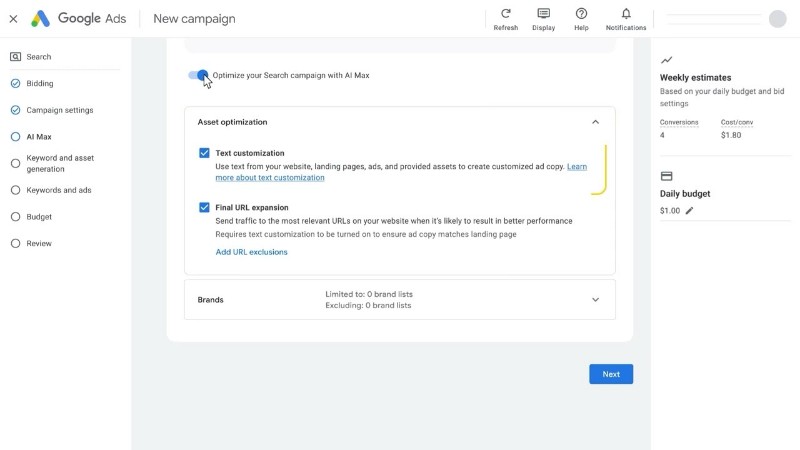
Google’s AI Max for Search, now in global beta, represents a significant evolution in online advertising. Instead of depending solely on keywords, the new system focuses on user intent, understanding what people truly mean when they search, not just the words they use.
This shift highlights a growing industry trend where predictive insights and contextual understanding matter more than simple keyword targeting. For advertisers, it signals a move toward campaigns driven by relevance, behavior, and deeper engagement rather than broad impressions.
Understanding the AI shift
AI Max for Search uses Google’s machine learning to match ads with user intent, even when queries don’t perfectly align with keywords. This allows brands to engage potential customers earlier in their decision-making journey.
Google reports that advertisers using AI Max have seen up to 14% higher conversions or conversion value, improving ROAS and overall campaign performance. For businesses running eCommerce paid search campaigns, this approach provides more precise targeting and better measurement of marketing effectiveness.
Smarter campaigns, not hands-free advertising
Industry experts caution that while AI brings speed and optimization, it doesn’t eliminate the need for human oversight. Analysts from Search Engine Land emphasize that advertisers must still guide AI systems with structured data, audience insights, and clear business goals.
Without strategic input, algorithms risk prioritizing low-value clicks or irrelevant audiences, wasting ad budgets and reducing impact. Effective AI management means collaboration, combining automation’s precision with human judgment and creativity.
E-commerce fundamentals still matter
For online stores, AI improvements extend to Google Shopping management, offering enhanced targeting, visibility, and integration with pricing and shipping. However, core practices like maintaining clean product feeds remain critical.
With average eCommerce return rates at 16.9% (National Retail Federation, 2024), reducing returns strengthens LTV, lowers CAC, and maximizes ROAS, making every marketing dollar more effective.
Ultimately, AI should serve as a high-performing partner, a tool guided by human expertise, strategic insight, and data-driven decisions, rather than an unsupervised solution.

